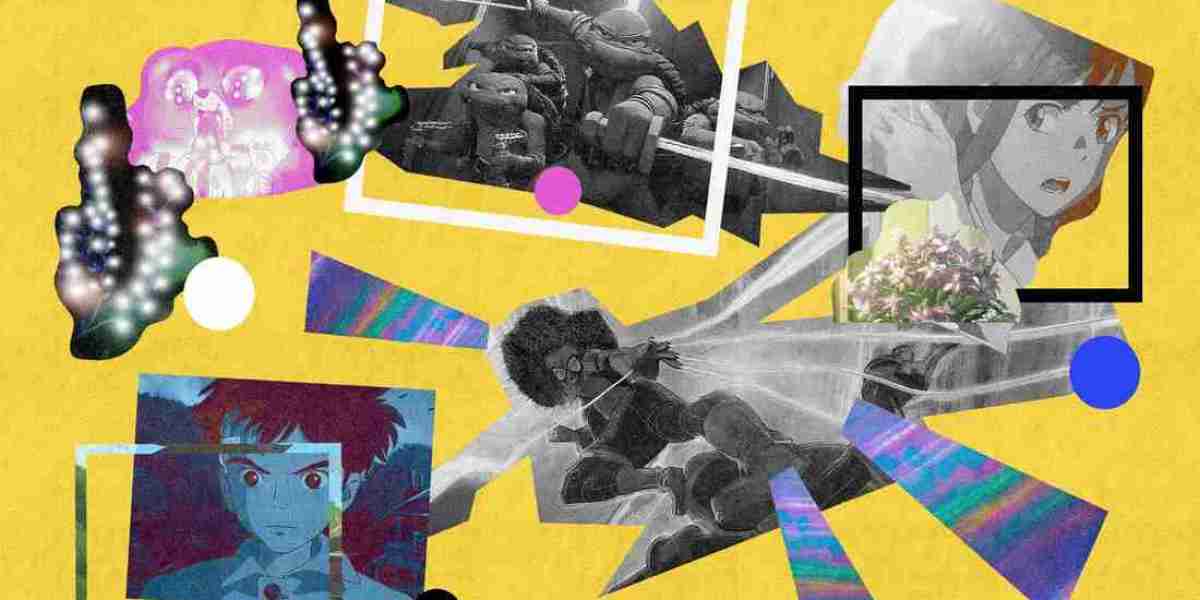Even last winter it was obvious that this year would be stacked with new animated feature classics. Fresh TMNT and Spider-Verse films were well on their way, as early as April, The Super Mario Bros. Movie Ground Pounded the box office and, in Suzume, a mythical worm threatened to do the same to Japan’s metropolitan centers. It’s been a huge year for original work from directors like Hayao Miyazaki and Alberto Vázquez but also for splashy IP comebacks alike. Somehow, in the age of content removals and cost reductions, we even wound up getting a Venture Bros. movie — and it ruled! It didn’t come without a cost: We’ll never get back the time spent watching Disney’s godawful Wish, Adam Sandler’s so-called comedy Leo, and the irredeemably bad Trolls Band Together. Feel free to skip those in your end-of-year catch-up. Watch the best animated movies of the year instead.
The year’s biggest, silliest IP grab was also one of its hottest at the box office — now a $1.36 billion worldwide hit that topped every other 2023 release until Barbie rolled around. The Chris Pratt–led movie has made nearly 40 times what the notorious live-action Super Mario Bros. flop did 30 years ago. And it’s also pretty good for what it is: a highly watchable, 92-minute color wheel of Nintendo fan service. Its spins through Mario game mainstays like the Mushroom Kingdom, the Jungle Kingdom, and Rainbow Road are all delightful. Though The Super Mario Bros. Movie takes basically no narrative risks, it’s also not as irritating as a more winking movie would have been. Directors Aaron Horvath and Michael Jelenic give Mario about as simple a character arc as his games do, liberally mine elements from those games, and cram them in as many of Illumination’s thrillingly artistic sequences as the run time can support. We call that an “Okey dokey!”
The new Venture Bros. film might take you a couple of sittings to get through. Not because it’s a slog, but because you simply won’t want the movie, and the 20-year franchise as a whole, to end. Radiant Is the Blood of the Baboon Heart may be a direct-to-video release, but for fans of the show — which aired its sprawling, often cryptic, highly self-referential story over seven intermittently released seasons — it’s Tony sitting down in the diner at the end of The Sopranos. Like that finale, whether you want more or whether you think it’s just right, Radiant packs ideas and symbolism galore into its 84 minutes. It’s also a story with many intentional misdirects, red herrings, and undercuts of the audience’s expectations. By the end, the film impressively delivers closure to the relationships between the obsessive Monarch and his archenemy, Dr. Rusty Venture, as well as the bond between Rusty’s sons, Hank and Dean, but like all of Venture Bros.’s best button endings, it will keep you yelling for more.
They still plot, they still scheme, they are still organized — even when faced with the threat of pacification and pulverization into nuggets. The long-awaited Chicken Run sequel may not improve much on the original film, but it delivers on almost everything you could want from a return to its stop-motion world. In Dawn of the Nugget, Ginger, Rocky, and their daughter, Molly, need to orchestrate a new breakout once they learn that Mrs. Tweedy has remarried and found a way to enthrall chickens so that they become docile and easier to kill. All your faves are back, even if not all of them are played by their original voice actors (we miss Julia Sawalha; we do not miss Mel Gibson!), and Bella Ramsey’s Molly introduces a new generational riff to the chickens’ dynamic. Dawn of the Nugget doesn’t quite re-coop the lightning of the original, but it’s a lean, highly polished film, and the stop-motion action sequences are especially a treat.
The “Care Bears meets Apocalypse Now” label this movie’s gotten isn’t an exaggeration. Director Alberto Vazquez’s movie pits colorful, cuddly cubs against a mysterious race of black unicorns in bloody, vengeful conflict. This one of the funniest and most grotesque animated fantasy films of the decade — in which we get to know an adorable, richly designed cast of ursine characters before they meet their brutally gory ends. Along the way, Unicorn Wars offers commentary on the nature of conflict and the human bear condition, ultimately making a statement on militarism, propaganda, and religion. “All empires and all nations have their narratives to justify the wars,” Vazquez has said in an interview. Unicorn Wars is the sort of film that has no realistic shot at something like an Academy Award, even for animation, but it’s a great example of what the medium is capable of achieving.
Blue Giant will convince you jazz is capable of space travel — if you needed convincing, that is. In the bars of Tokyo, its teen heroes Dai, Yukinori, and Shunji strive to be great musicians, forming a band laughably named JASS and practicing day and night as they try to play the hottest club in town. The setup is nothing groundbreaking, but the performance sequences are out of this world, literally. In scenes where the band is really feeling it, the animation’s clean linework gives way to abstractions: Dai blows kaleidoscopic streams of fire out of his sax, Yukinori distorts the whole piano as his fingers tickle the keys, and Shunji sends sparks of light flashing every time he hits the drum kit. The film excels at visualizing not just the difficulty of rigorous musicianship but the transcendent feeling of hearing or playing something beautiful. At one point, we know they are physically playing a club, but we’re watching their souls making music together in the heart of a supermassive black hole — blissfully caught up in the vortex of their vibe. You might get caught up in it, too.


